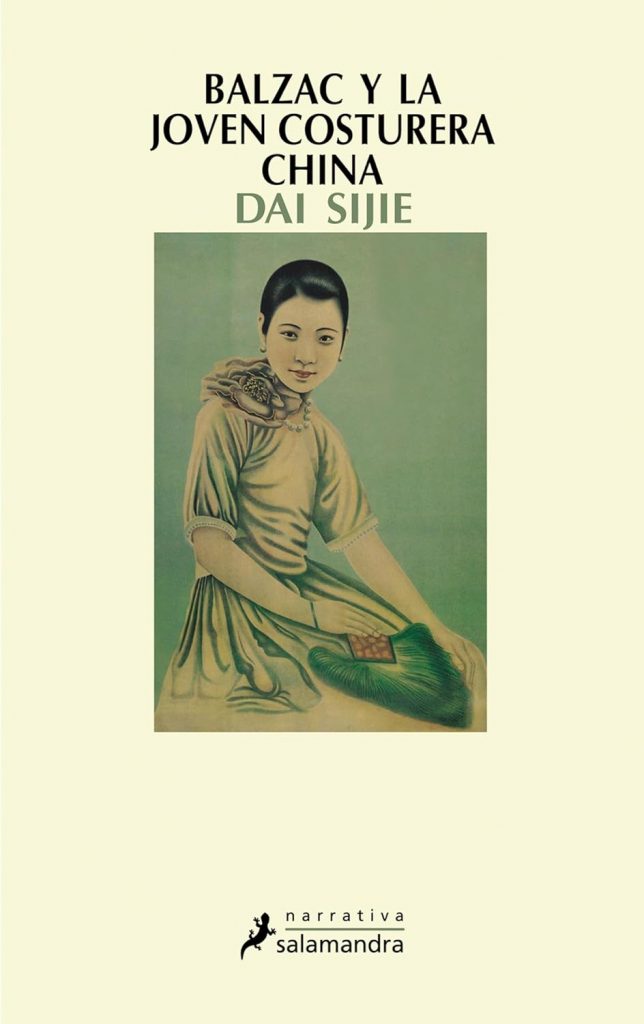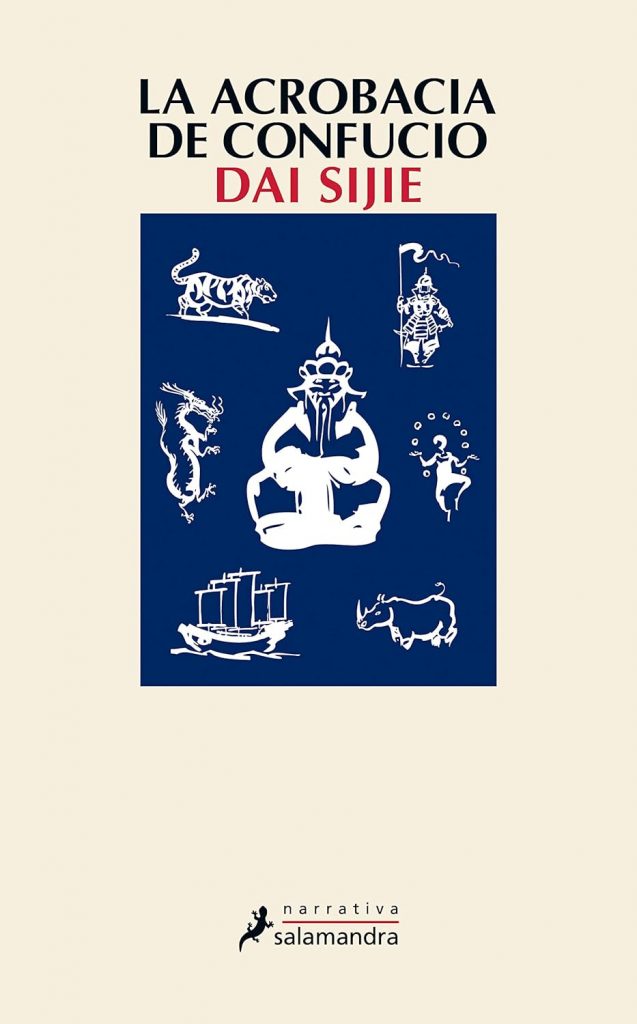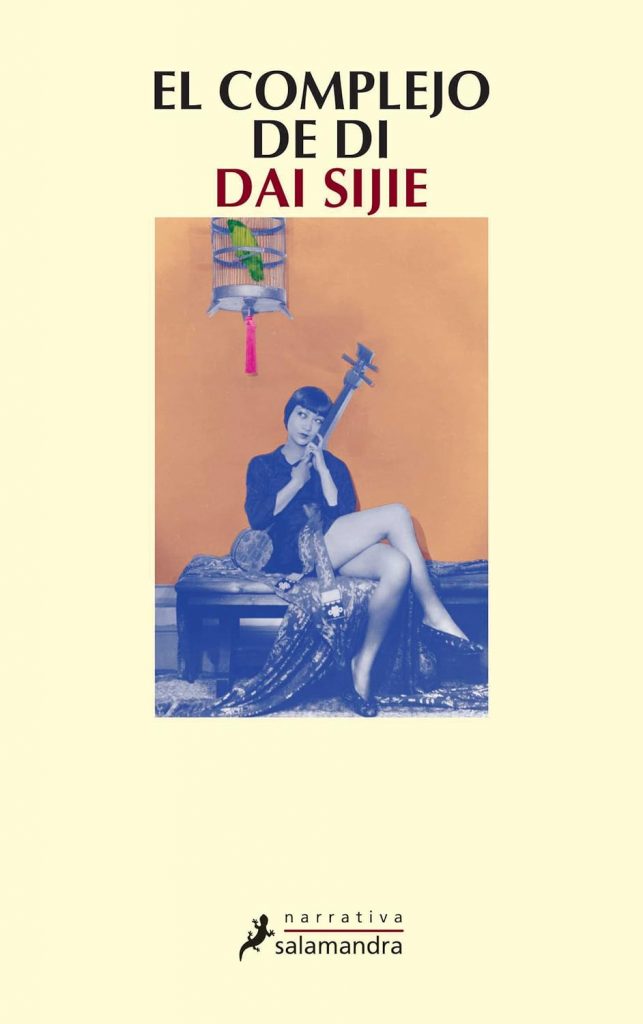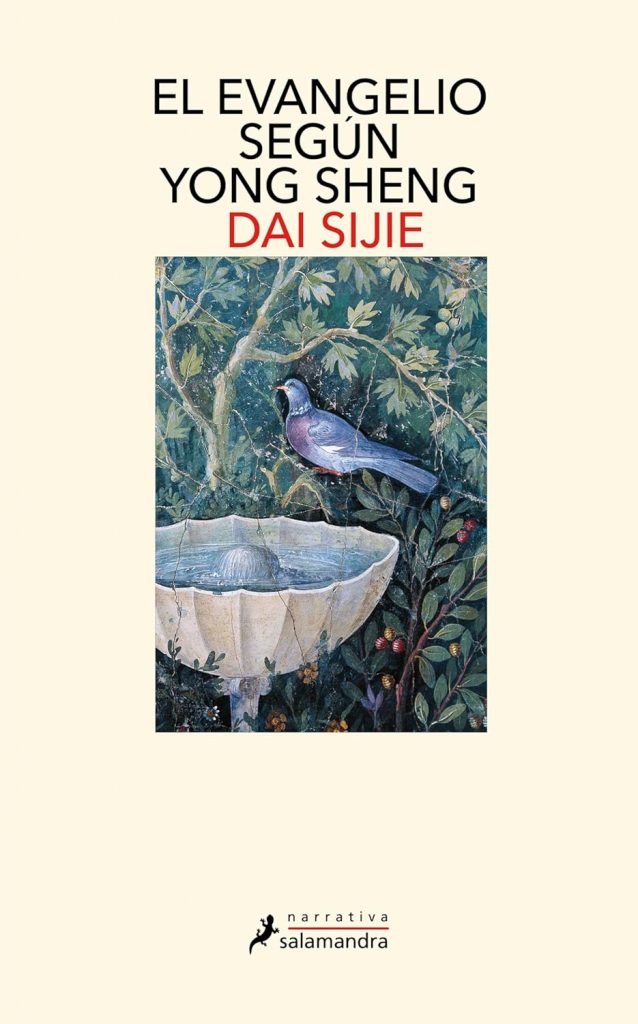Dai Sijie's work is a kind of informative mission of humanism made into literature. Because Dai Sijie's stories exude that transcendence of works with a final moral, like proverbs extended in each scene of his plots. A desire for teaching, assuming the subjective nature of the novel, from the example and that discovery of life as a concatenation of decisions that make up everything.
The point is that not only with that desire, among existentialist from Chinese tradition, writes Dai Sijie. Because he also delights in history (especially in the context of his original China), and in experience as an adventure. Thus finally giving action to his plots. And the result, the mixture, the melting pot... ends up composing exciting novels and stories from any prism that they are contemplated.
Top 3 Recommended Novels by Dai Sijie
Balzac and the young Chinese seamstress
The work with which Dai Sijie conquered readers around the world. A proposal that has a lot of discovery of light among the shadows. A round idea to present youth as the perfect moment for effective rebellion, that which starts from the inner forum against the trompe l'oeil of the authoritarianism of the day. With a dystopian point but with the notion that much of this socially undesirable approach is not always a question of futures or futures, but of present.
Two Chinese teenagers are sent to a lost village in the Sky Phoenix Mountains, near the border with Tibet, to complete the "re-education" process implemented by Mao Zedong in the late 1960s. Enduring subhuman living conditions, with almost zero prospects of one day returning to his hometown, everything changes with the appearance of a clandestine suitcase full of emblematic works of Western literature.
Thus, thanks to reading Balzac, Dumas, Stendhal or Romain Roland, the two young people will discover a world full of poetry, feelings and unknown passions, and they will learn that a book can be an invaluable instrument when it comes to conquering the attractive Sastrecilla, the young daughter of the tailor from the neighboring town.
Confucius' acrobatics
The Star of Bethlehem marked the way for Christian believers. Other stars fascinated astronomers much later, inviting new routes to new discoveries toward the spiritual from the completely earthly and corporeal. Or at least that is what emerges from this fascinating story of searches for new Ulysses, fascinated by unattainable celestial domes. Being impossible to reach stars physically, one can try from them with the spiritual impulse of a tremendous orgasm or rocked in the brilliant drowsiness of opium.
Overflowing with vitality, intelligent humor and with the frenetic pace that characterizes all his works, this novel by Dai Sijie offers the reader a subtle, erudite and playful reflection on the game of masks of power through a series of exuberant adventures starring one of the most eccentric characters in Chinese historiography. In the year 1521, during the Ming dynasty, the appearance of a new star is interpreted by court astronomers as a dire omen whose spell requires the emperor to leave the capital for a time.
Thus, His Majesty, Zheng De, embarks on a journey to the south in a floating ship as luxurious as a palace, accompanied by three hundred beautiful concubines, more than six hundred eunuchs and his four doubles, so similar to the sovereign that it is impossible to attack him. . Passionate about opium, hunting and sex, Zheng De distracts himself with the practice of sophisticated erotic games inspired by the teachings of Confucius while he sails towards his destination, the rich city of Yangzhou, where no less exciting adventures such as hunting await him. of rhinos and a strange creature never seen before. But none of the pleasures that so seduce the emperor can make him forget that Eros and Thanatos usually go hand in hand, and that, therefore, he should prepare for everything that destiny has in store for him.
Di's complex
Some autobiographical intention. In the sense of that return to China from its current Paris. Except that Dai Sijie sublimates his return in this fiction by becoming a Don Quixote who has come to China to undo all kinds of wrongs without forgetting the safeguard of his beloved. The remote epic with a burlesque touch, the romanticism of the madman. We mix everything to discover a modern satire where the author expiates the melancholy of the emigrant to offer us that typical future of the classic novel, between metaphors and double readings, between tragedies and comedies as the same thing, depending on how you look at it.
At forty years old, with no possessions other than his nearsighted glasses and the notebooks where he carefully writes down his dreams, Muo returns to China after having spent eleven years in Paris studying psychoanalysis. He is driven by a mission as noble as it is risky: to free from prison the woman of his dreams, Volcán de la Vieja Luna, who is languishing in prison for having supplied the European press with photographs of police officers torturing detainees. To save her, the corrupt judge Di demands a young virgin in return for her favor.
Thus, devoted to the spirit of chivalry, Muo rides an old bicycle to go out in search of a maiden, in what will be a fascinating psychoanalytic excursion through today's China, where feudal customs coexist with a decaffeinated communist regime and the thriving invasion of capitalist paradise. Corruption, but also the naivety and joy of its people, the mischief and solidarity, will be the contrasting faces that will emerge in a succession of tragicomic adventures and scenes as hilarious as they are unforgettable.
Other recommended books by Dai Sijie
The gospel according to Yong Sheng
Family traditions can be as absurd as those who dedicate themselves, generation after generation, to the design of pigeon whistles. The artisanal as an analogy of the obligatory nature of belonging. Tradition blurred to the point of caricature when a new heir understands that this is not his destiny...
In a village in southern China, at the beginning of the 20th century, Yong Sheng is the son of a carpenter who makes whistles for domesticated pigeons. Yong Sheng was destined to be a craftsman until he met Maria, a Christian school teacher, who awakened the boy's vocation: while making whistles like his father, he decides to become the first Chinese shepherd in the city.
Forced to marry to obey old superstitions, Yong Sheng studies theology in Nanjing and, after many adventures, the young pastor returns to Putian to spend a brief period of happiness ministering in his hometown. But everything changes in 1949 with the arrival of the communist regime, which begins an era of torment for him and for many other Chinese.




